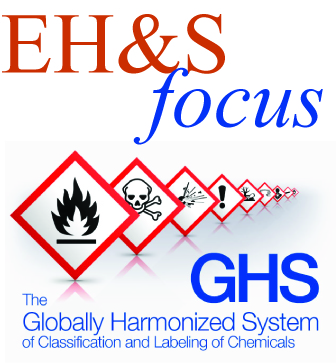Our virtual training platform offers important safety training, including guidance on the Globally Harmonized System (GHS). Adopted by OSHA in 2014 under 29 C.F.R. § 1910.1200 (Hazard Communication Standard), the GHS standardizes and harmonizes the classification and labeling of chemicals.
Under the GHS system, Material Safety Data Sheets (MSDS) are now referred to as Safety Data Sheets (SDS). All UTHealth Houston personnel can access these SDS free of charge either through CHEMWATCH or the EHS Chemical Safety at (713) 500-5832.

Required Safety Training
All UTHealth Houston and UTPhysicians employees receive Safety Orientation Training upon employment during the New Employee Orientation session provided by Human Resources. During this session, basic information is provided about general safety, fire safety, emergency procedures, emergency communication, and information is provided about additional safety training offered by SHERM.
Subsequently, all UTHealth Houston employees will also receive refresher training on basic safety information within the Health and Safety Module provided during the Annual Employee Compliance Training.
All laboratory and clinic based employees are required to take an Initial Safety course and then an Annual Refresher one year from the date of your Initial Safety course. For more information on laboratory and clinical based training please select this link
Important Notes
- Chemical Inventory Management: Maintain updated chemical inventories to prevent misuse of laboratory chemicals, such as unauthorized experiments or illegal activities.
- Door Signs: For door sign updates, including new principal investigator or lab contact information, NFPA rating, and BSL designation, contact EHS at (713) 500-8100.
- Controlled Substances: Ensure secure storage and accurate records of purchases and disposals for controlled substances, precursor drugs, and laboratory apparatus. Recordkeeping requirements are outlined under 21 C.F.R. 1304 (Records and Reports of DEA Registrants).
- Security and Reporting: Report any unauthorized lab access attempts, missing supplies, unsolicited lab deliveries without corresponding purchases, and other suspicious or unexplained activities.
- Annual Chemical Inventory: Compile and submit an annual inventory of all hazardous chemicals, specifying location (building and room) and quantity, to EHS during lab safety surveys. For assistance, contact EHS Chemical Safety at (713) 500-5832.
- Glove Selection: Use a glove compatibility chart to select appropriate gloves for handling different chemicals.
- Infectious Substance Shipping (ISS): Mandatory for anyone shipping infectious or diagnostic samples. Classroom refresher training is required every 2 years or as regulations change.
- Safety Committee Review: Prior to use, obtain approval for the use of acutely toxic/physically dangerous chemicals, radioactive materials, and biological agents or rDNA from the respective safety committees (e.g., Chemical Safety Committee, Radiation Safety Committee, Institutional Biosafety Committee).
- Surplus Equipment Transfer: For transferring unwanted equipment transfer to Capital Assets Management, complete a Surplus Transfer Form. Avoid storing equipment in hallways or egress corridors. Refer to the Surplus Guidance document for more details.
- Radioactive Materials Training: Required for all personnel working with radioactive materials, X-rays, and lasers (Class 3 & 4). For more information, contact the Radiation Safety Program at (713) 500-5840.
- Waste Disposal: Autoclave microbiological waste to reduce biohazardous waste collection. Do not autoclave chemicals, nanoparticles, radioactive materials, fecal matter, or animal carcasses. Contact the Environmental Protection Program at (713) 500-5837 for guidance.